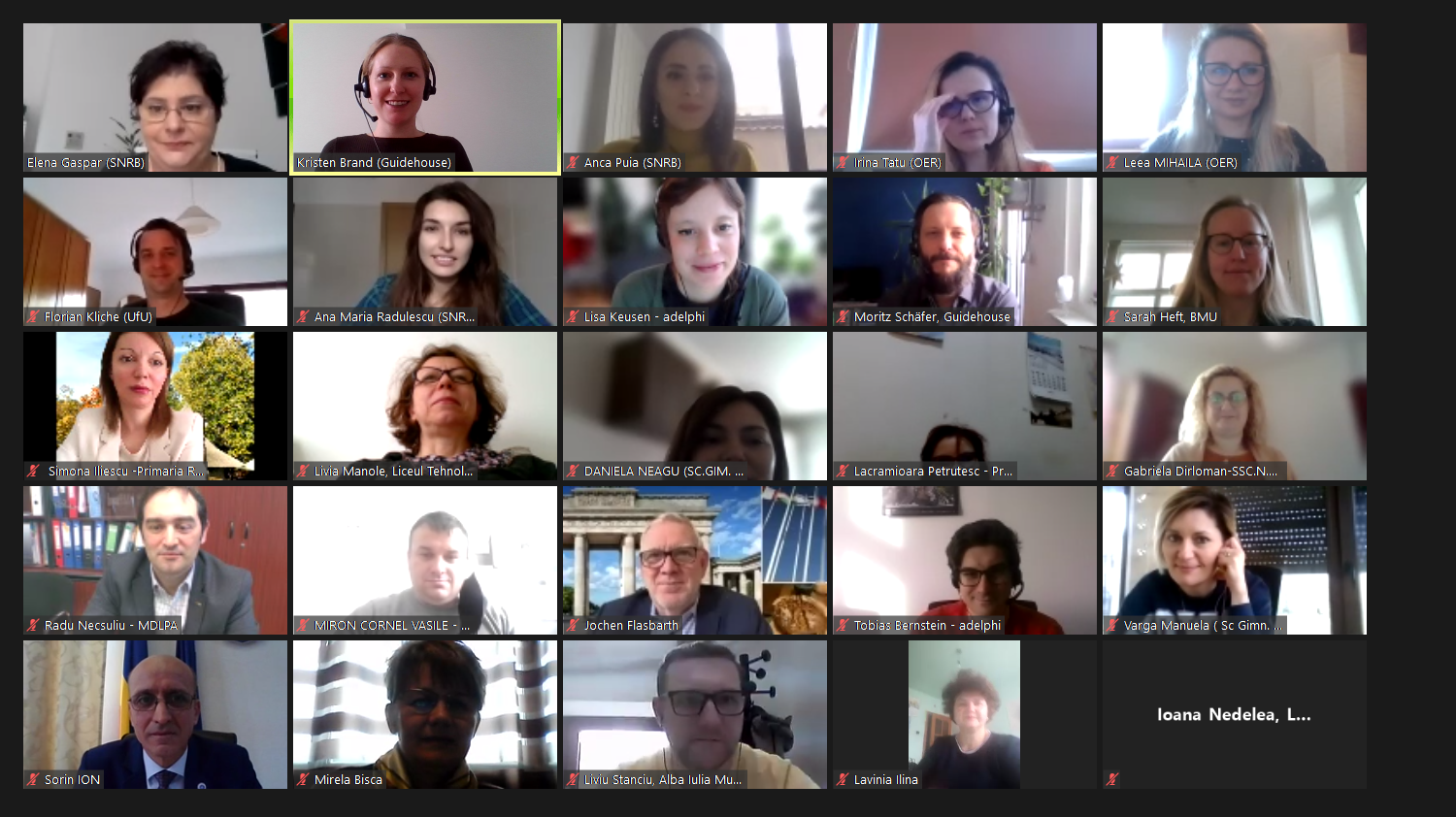Connecting the Dots: Education and Renovation in Romania
To mitigate climate change and achieve climate neutrality, we need to tap into all of the resources at our disposal and utilise all linkages between stakeholders to maximise the impact of our climate action measures. One important climate action measure is the renovation of public buildings like schools. From policy makers to project developers, municipalities and end users like pupils, a wide range of stakeholders are associated with and impacted by this process. Reaching the energy savings potential of renovated schools requires cooperation between relevant parties and education of the end-users, i.e. pupils and school staff.

In a workshop on 23-24 February entitled Climate Neutrality – Better Buildings – Better Future, stakeholders from municipalities, schools and the national government in Romania came together virtually to explore why it’s important to get the most out of our renovated (school) buildings; how the key stakeholder groups like school building users can contribute to improved energy performance results in simple yet impactful ways; and how climate action can be incorporated into the national curricula.
Led by BEACON partners OER, SNRB, and Guidehouse, this ‘vertical integration’ workshop sought to connect actors from municipalities and schools with policy makers in the national ministries in an effort to advance information sharing between stakeholders and initiate structural improvements along the workshops key themes: 1) cooperation in the school building renovation process and 2) the incorporation of climate action into the national curriculum.
On the first day of the workshop, representatives from BEACONs Romanian municipalities (Alba Iulia, Făgăraş, Deva, Râmnicu Vâlcea, and Zalau) dived into group discussions on barriers after presentations by OER and SNRB to set the scene and connect the two discussion themes. They also heard about the renovation experiences of a school in Deva.
The BEACON municipalities and schools were joined on day 2 by State Secretary of the Romanian Ministry of Education Sorin Ion, State Secretary of the Romanian Ministry of Environment, Water and Forestry Raul Pop and representative of the Romanian Ministry of Development, Public Works and Administration Radu Necsuliu. State Secretary of the German Federal Ministry for the Environment Jochen Flasbarth also provided inspiring welcome words on the energy savings potential of the building sector in the context of the EU Renovation Wave Strategy.

In the group work on day 2, the participants discussed next steps to initiate meaningful improvements on the themes at hand, some of the conclusions of which can be found below:
Theme 1: cooperation in the school building renovation process
- Collaboration in the building renovation process in Romania should be more open and active, including all parties affected by this process, from municipalities and technical experts to building users like students
- End users should be surveyed about their behaviour before and after renovations
- Training should be provided on a regular basis and adapted to groups of building users (e.g. teachers, technical-administrative staff, students)
Theme 2: incorporation of climate action into the national curriculum.
- The national curricula should be adapted as soon as possible (academic year 2021/2022) by introducing an optional course supported by the Ministry of Education
- In the medium term, climate change/action should be adapted as a compulsory subject in schools
- An advisory committee should be established and collaboration between national and local levels and schools could be coordinated by independent organization.
The progress made during this workshop will be continued in another BEACON workshop in Romania this spring.
